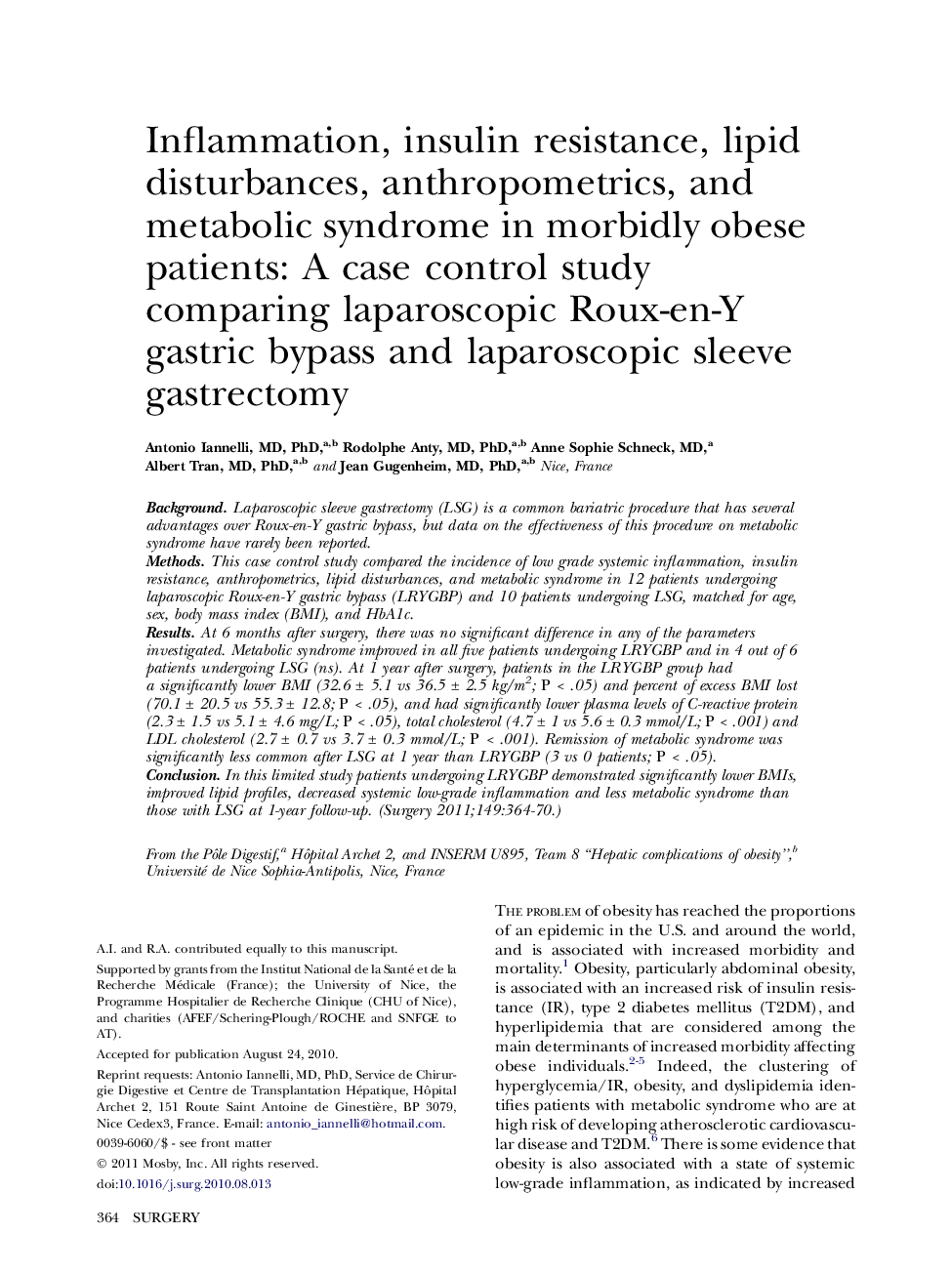| Article ID | Journal | Published Year | Pages | File Type |
|---|---|---|---|---|
| 4308170 | Surgery | 2011 | 7 Pages |
BackgroundLaparoscopic sleeve gastrectomy (LSG) is a common bariatric procedure that has several advantages over Roux-en-Y gastric bypass, but data on the effectiveness of this procedure on metabolic syndrome have rarely been reported.MethodsThis case control study compared the incidence of low grade systemic inflammation, insulin resistance, anthropometrics, lipid disturbances, and metabolic syndrome in 12 patients undergoing laparoscopic Roux-en-Y gastric bypass (LRYGBP) and 10 patients undergoing LSG, matched for age, sex, body mass index (BMI), and HbA1c.ResultsAt 6 months after surgery, there was no significant difference in any of the parameters investigated. Metabolic syndrome improved in all five patients undergoing LRYGBP and in 4 out of 6 patients undergoing LSG (ns). At 1 year after surgery, patients in the LRYGBP group had a significantly lower BMI (32.6 ± 5.1 vs 36.5 ± 2.5 kg/m2; P < .05) and percent of excess BMI lost (70.1 ± 20.5 vs 55.3 ± 12.8; P < .05), and had significantly lower plasma levels of C-reactive protein (2.3 ± 1.5 vs 5.1 ± 4.6 mg/L; P < .05), total cholesterol (4.7 ± 1 vs 5.6 ± 0.3 mmol/L; P < .001) and LDL cholesterol (2.7 ± 0.7 vs 3.7 ± 0.3 mmol/L; P < .001). Remission of metabolic syndrome was significantly less common after LSG at 1 year than LRYGBP (3 vs 0 patients; P < .05).ConclusionIn this limited study patients undergoing LRYGBP demonstrated significantly lower BMIs, improved lipid profiles, decreased systemic low-grade inflammation and less metabolic syndrome than those with LSG at 1-year follow-up.
